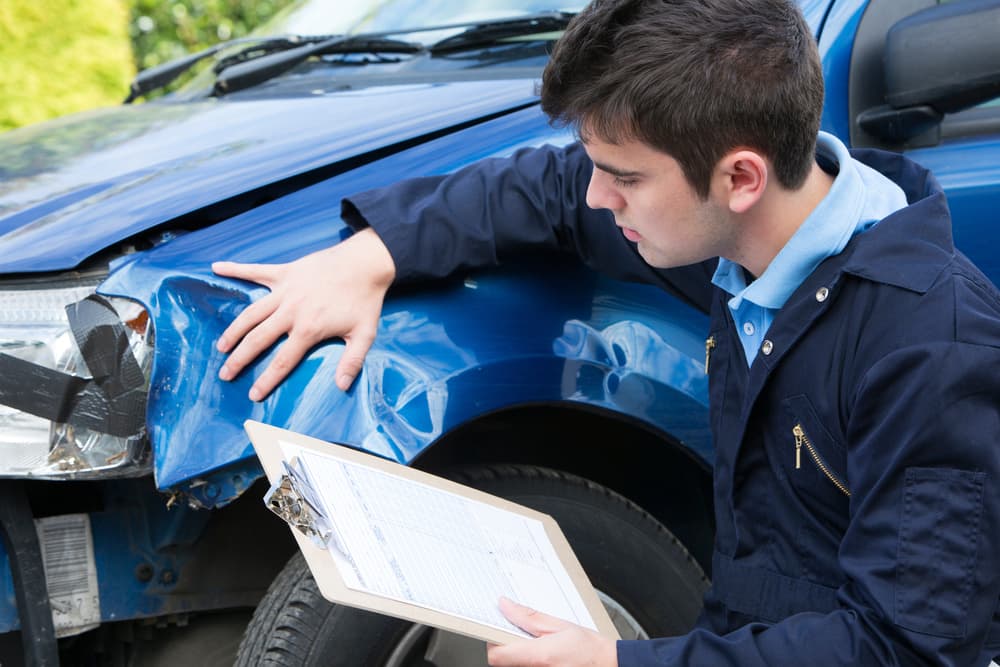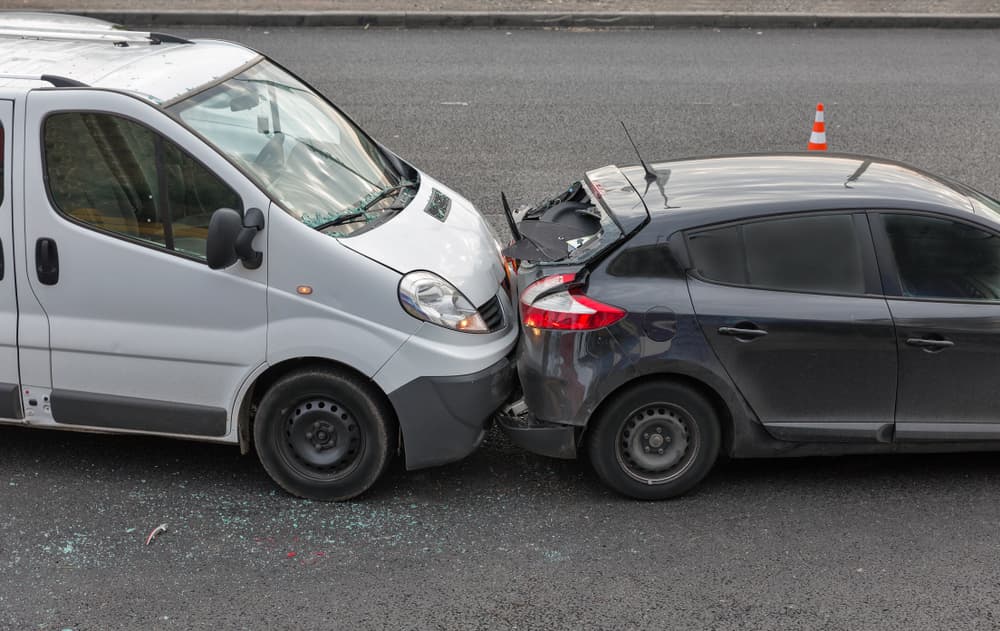Despite it being against the law in many jurisdictions, some motorists still drive on local roadways without insurance coverage. If these drivers later cause an accident, individuals on the receiving end may suffer debilitating and sometimes lifelong personal injuries.
Unless the uninsured driver has a significant amount of personal assets, it is not usually worthwhile to file a lawsuit against them. Even if the at-fault driver does have assets at their disposal, it may be extremely difficult to gain access to those assets or to garnish their wages. Often, the better approach is to file an uninsured motorist claim with your own insurance company. Your insurance company may “step into the uninsured driver's shoes” and supply the necessary coverage in that situation.
Similarly, if the driver who caused your accident had insurance coverage, but the coverage was not sufficient to compensate you for all of your accident-related losses, you may file an underinsured motorist claim with your own insurance company to bridge the gap.
A knowledgeable car accident lawyer in your area can determine your eligibility for filing an uninsured or underinsured motorist claim and handle every step of the process. Additionally, your attorney can pursue litigation if the insurance company does not compensate you fairly.
Schedule a Free Initial Consultation Today!
How do Uninsured and Underinsured Drivers Cause Accidents?
Uninsured and underinsured drivers contribute to motor vehicle accidents in many ways, each posing risks to themselves and others on the road. One prevalent factor is distracted driving, encompassing activities such as texting, talking on the phone, or engaging in other activities that divert attention from the road. Uninsured and underinsured drivers, like any other motorists, may succumb to distractions, leading to impaired judgment and increased accident risks.
Reckless driving is another significant contributor to accidents involving uninsured or underinsured drivers. Speeding, aggressive maneuvers, and disregarding traffic rules can lead to collisions. Some uninsured drivers may lack the financial means to address traffic violations promptly, potentially fostering a pattern of reckless behavior.

Driving under the influence of alcohol or drugs is a pervasive issue, even among uninsured or underinsured motorists. Impaired driving significantly affects reaction time, coordination, and decision-making skills, heightening the likelihood of accidents.
Uninsured and underinsured drivers may also be involved in accidents due to inexperience. Some individuals may not have the necessary driving skills or knowledge of traffic regulations, increasing the likelihood of errors and misjudgments on the road.
Failure to obey traffic signals and signs is another common cause of accidents involving uninsured or underinsured drivers. These drivers may be more prone to collisions at intersections or other traffic control points, whether due to negligence, lack of awareness, or intentional disregard for traffic laws.
Inadequate vehicle maintenance is another contributing factor. Uninsured or underinsured drivers may face financial constraints, leading to neglected vehicle maintenance. Mechanical failures, such as brake malfunctions or tire blowouts, can result in accidents that pose risks to all road users.
Lastly, uninsured and underinsured drivers may be more susceptible to driving without a valid license. This may be due to various reasons, such as a suspended license or failure to obtain proper documentation. Driving without a license not only increases the likelihood of accidents but also presents legal complications for all parties involved.
Following an accident involving an uninsured or underinsured driver, an experienced personal injury attorney can review your insurance options and pursue the appropriate legal action in your case.
Injuries in Car Accidents that Involve Uninsured and Underinsured Motorists
Accident victims involved in collisions with at-fault uninsured or underinsured drivers can sustain a range of injuries that vary in severity and impact. One common type of injury is soft tissue injuries, affecting muscles, ligaments, and tendons. Whiplash, for instance, is a soft tissue injury often associated with rear-end collisions, causing neck and upper back pain due to the abrupt back-and-forth movement of the accident victim’s head.
Traumatic brain injuries (TBIs) are another significant concern. The force of a collision may result in head injuries ranging from concussions to comas and other severe brain damage. These injuries may further lead to cognitive impairments, memory loss, and changes in behavior, affecting the victim's overall quality of life.
Spinal cord injuries are also particularly severe and can have long-lasting consequences. The force associated with a collision may damage the accident victim’s spinal cord, leading to paralysis or loss of sensation. Such injuries significantly affect an individual's mobility and independence, requiring ongoing medical care and rehabilitation.
Fractures and broken bones are another common outcome of traffic accidents. The force exerted during a collision can result in fractures to the arms, legs, ribs, or other skeletal structures. The severity depends upon the nature of the accident and the point of impact.
Internal injuries, while not immediately visible, can be life-threatening. Blunt force trauma can cause damage to internal organs such as the liver, spleen, or kidneys. Internal bleeding may also occur, necessitating prompt medical attention.
Burn injuries are another potential consequence, especially in accidents involving fires or explosions. Burns can range from minor to severe, requiring extensive medical treatment and possibly plastic surgery for recovery.
The cumulative effect of these injuries can result in significant pain and suffering for the accident victim, both physical pain and mental suffering. Emotional distress, loss of enjoyment of life, and a diminished ability to engage in daily activities can accompany physical injuries, amplifying the overall challenges that accident victims face.
Understanding the diverse range of injuries that can occur in accidents involving uninsured or underinsured drivers highlights the importance of seeking a comprehensive medical evaluation and legal support. While you focus on getting the medical treatment you need, an experienced motor vehicle accident lawyer can begin handling the preliminary legal steps in your case.
Initiating an Uninsured Motorist Claim
When dealing with an uninsured driver as part of an uninsured motorist claim, it's essential to understand the intricacies involved in the process. Uninsured motorist coverage protects policyholders if they are involved in an accident with a driver who lacks insurance. This coverage typically comes into play when the at-fault party cannot cover the damages, leaving the injured accident victim with limited options for compensation.
To initiate an uninsured motorist claim, the first step is to gather all pertinent information about the accident. This includes details about the uninsured driver, such as their name, contact information, and a description of the incident. Documenting the scene with photographs and obtaining any available witness statements can strengthen your case.
Once you've reported the accident to your insurance company, they will likely conduct their own investigation to verify the other driver's uninsured status. This process may involve obtaining a police report, which can be official documentation of the incident and the uninsured driver's liability.
Keep in mind that uninsured motorist coverage typically encompasses not only bodily injury but also property damage. This allows policyholders to seek compensation for medical expenses, lost income, and repair or replacement of their vehicle.
While uninsured motorist coverage is a valuable safeguard, it's crucial to be aware of policy limits. The compensation you can receive is often capped, and it may not cover all of your expenses in a severe accident scenario. In such cases, exploring legal options against the uninsured driver may be necessary.
Filing a lawsuit against an uninsured driver can be challenging, as they may lack the financial means to cover the damages. However, pursuing legal action can lead to a judgment against the uninsured driver, providing you with a legal claim to their assets or future earnings.
Filing an Underinsured Motorist Claim
Filing an underinsured motorist claim becomes necessary when you are involved in an accident with a driver whose insurance coverage is insufficient to fully compensate you for the losses you incurred. Underinsured motorist coverage can often bridge the gap between the at-fault driver's insurance limits and your actual expenses.

The decision to file an underinsured motorist claim arises when the at-fault driver's insurance coverage is exhausted, leaving you with remaining costs that exceed their policy limits. It's crucial to evaluate the extent of your damages and compare them to the available insurance coverage. If the at-fault driver's policy falls short, you can turn to your own underinsured motorist coverage for additional compensation.
To initiate an underinsured motorist claim, promptly notify your insurance company about the accident. Timely reporting is essential to comply with policy requirements. You should also provide detailed information about the incident, including the other driver's insurance details, a description of the accident, and any supporting documentation, such as photographs or witness statements.
After filing the claim, your insurance company will investigate to determine the extent of the underinsured driver's liability. This process may involve obtaining the at-fault driver's insurance information, reviewing your policy limits, and assessing the total damages you incurred in the accident.
It's also essential to be aware of the limits of your underinsured motorist coverage. The amount you can claim is subject to the policy limits you selected when purchasing the coverage. You should carefully review your policy documents to understand the maximum amount available for your claim.
In some cases, negotiating an underinsured motorist claim with your insurance company may be necessary. Insurance adjusters will assess the evidence provided and may engage in discussions with your attorney to reach a fair settlement amount. If your lawyer cannot reach an agreement through negotiation, alternative dispute resolution (ADR) methods or litigation may be necessary in your case.
Recovering Favorable Monetary Damages via a UM or UIM Claim
In the aftermath of an accident involving an uninsured or underinsured motorist, the injured victim may seek various forms of monetary compensation as part of an insurance claim. These compensations aim to address the physical, financial, and emotional toll the accident has taken on the victim’s life.
- One primary category of compensation involves medical expenses. Injuries sustained in an accident often require immediate and ongoing medical attention. An uninsured or underinsured motorist claim can cover the costs associated with hospitalization, medications, procedures, physical therapy, occupational therapy, and other necessary medical treatments.
- Lost income is another critical aspect of compensation. An accident may result in the victim being unable to work temporarily – or even permanently – due to their injuries and medical treatment. Under an uninsured or underinsured motorist claim, the injured party can seek compensation for their lost income because of their inability to work.
- Pain and suffering recognizes the physical and emotional distress that the accident victim experienced due to the accident and resulting injuries. This type of compensation seeks to address the accident victim’s ongoing pain, discomfort, anxiety, and emotional trauma. It’s a subjective assessment, often factoring in the severity of injuries and their effect on the accident victim's enjoyment and quality of life.
- Property damage is another consideration in uninsured or underinsured motorist claims. Beyond bodily injuries, accidents can cause damage to the victim's vehicle or other personal property. Compensation for property damage covers the repair or replacement costs of the damaged items, ensuring the victim is not burdened with these financial consequences.
In some cases, a victim may also incur expenses for services they can no longer perform themselves due to their injuries. These are known as household services and may include tasks such as house cleaning, yard maintenance, or childcare. Compensation for these services acknowledges the additional financial strain on the injured party when they can no longer carry out these responsibilities independently.
Understanding the range of compensation available for uninsured or underinsured motorist claims is crucial for accident victims. It allows them to comprehensively address the incident's physical, financial, and emotional aftermath, ensuring that they receive fair compensation for the damages they have suffered. A car accident lawyer can advise on what to expect.
Call an Experienced Car Accident Lawyer Today
If you suffered injuries in a motor vehicle accident that involved an uninsured or underinsured motorist, obtain the legal help that you need right away. A personal injury attorney in your area can file the appropriate claim on your behalf and work to secure the fair monetary compensation you deserve for your losses and damages.



